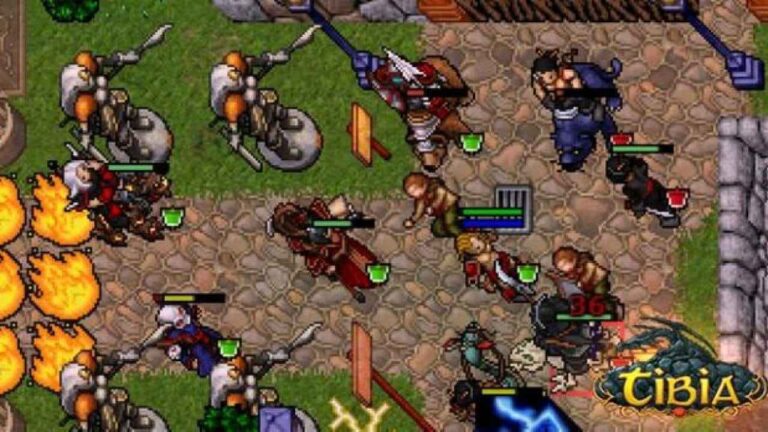Anúncios
Online gaming has become a huge part of modern life — whether you’re exploring open worlds, competing in intense matches, or teaming up with friends across the globe, there’s no denying its appeal. In the U.S., more than 65% of adults and over 70% of teens play video games regularly, according to the Entertainment Software Association (ESA).
But how much gaming is too much? Just like exercise, work, or even eating your favorite food, moderation is key. The right amount of gaming time depends on your age, health, responsibilities, and personal lifestyle.
Anúncios
In this guide, we’ll explore expert recommendations, real-life examples, and practical tips to help you find the perfect gaming balance — so you can enjoy your favorite titles without compromising your health or daily life.
Step 1: Understand Why Gaming Time Matters
Gaming isn’t inherently bad. In fact, studies show it can improve problem-solving, hand-eye coordination, and social connections. However, excessive gaming can lead to:
- Physical health problems – Eye strain, posture issues, repetitive strain injuries (RSI).
- Mental fatigue – Gaming burnout, decreased focus, irritability.
- Lifestyle imbalance – Poor sleep habits, skipped meals, neglect of work or school.
📌 Expert insight: The American Academy of Pediatrics (AAP) warns that too much screen time can impact physical activity levels and disrupt healthy routines, especially in children and teens.
Step 2: Know the General Recommendations
There’s no “one-size-fits-all” limit, but several health organizations provide useful guidelines:
| Age Group | Suggested Daily Limit | Source |
|---|---|---|
| Children under 12 | 1 hour of recreational gaming | American Academy of Pediatrics |
| Teens (13–18) | Up to 2 hours outside schoolwork | American Academy of Pediatrics |
| Adults | 2–3 hours of recreational screen time | World Health Organization & Mayo Clinic |
These recommendations focus on recreational time and do not include necessary screen use for work or education.
Step 3: Consider Your Age Group
Different age groups have different needs and limits:
- Children (6–12 years)
Limited attention spans and developing bodies benefit from diverse activities — sports, reading, offline play. - Teenagers (13–18 years)
Can tolerate more screen time but still need balance to support school performance and mental health. - Adults
Have more control but should avoid sacrificing sleep, exercise, and relationships for gaming.
Step 4: Balance Gaming with Other Activities
Healthy gaming means gaming is part of your day — not all of it.
A balanced day might look like:
- Work or school – Core responsibilities.
- Exercise – At least 30 minutes of physical activity.
- Offline social time – Interactions with friends/family in person.
- Rest – 7–9 hours of sleep.
📌 Pro Tip: Many professional esports players include fitness training, nutrition planning, and scheduled rest as part of their daily routine.
Step 5: Listen to Your Body and Mind
You may be playing too much if you notice:
- Blurred vision or headaches after sessions.
- Back, neck, or wrist pain.
- Feeling irritable when not gaming.
- Skipping meals or staying up too late regularly.
📌 If these symptoms sound familiar, reduce gaming time gradually until you feel better.
Step 6: Use Tools to Track Your Gaming Time
Most major gaming platforms help you monitor your activity:
- PlayStation – Track hours played in your profile.
- Xbox – Activity reports in your account settings.
- Nintendo Switch – Monthly activity summaries.
- Steam – Hours played listed per game.
📌 Extra tip: Apps like RescueTime, Forest, or StayFocusd help keep track of total screen time across devices.
Step 7: Take Regular Breaks
The 20-20-20 rule is a gamer’s best friend:
- Every 20 minutes, look at something 20 feet away for 20 seconds.
- Every hour, take a 5–10 minute break to stretch, drink water, or walk around.
💡 Why it matters: According to the American Optometric Association, regular breaks reduce digital eye strain and help maintain focus.
Step 8: Focus on Quality, Not Just Quantity
Two hours of immersive, rewarding gameplay can be more satisfying than six hours of repetitive grinding.
Better gaming sessions mean:
- Playing titles you truly enjoy.
- Engaging in challenging, creative, or social in-game activities.
- Avoiding excessive idle or AFK time just to rack up hours.
Step 9: Make Gaming Social and Positive
Online games can be a healthy form of social interaction if you:
- Play with friends or join positive communities.
- Avoid toxic chat environments and harassment.
- Balance solo gaming with multiplayer experiences.
📌 Healthy example: Joining a cooperative MMO guild or a friendly competitive team can boost motivation without leading to isolation.
Step 10: Create a Personalized Gaming Schedule
Rather than gaming whenever you feel like it, plan your sessions:
- Weekdays: Shorter sessions after responsibilities are done (1–2 hours).
- Weekends: Longer sessions (2–4 hours) with breaks.
- Scheduled days off: Give your mind and body a reset.
💡 Pro gamer approach: Many streamers set strict streaming schedules for consistency and self-care.
Bonus: Signs You’re Gaming a Healthy Amount
- You still complete daily tasks.
- You have time for hobbies and friends.
- You don’t feel anxious or irritable when not gaming.
- Your body feels good and rested after sessions.
Conclusion
Gaming is an amazing hobby — but like all great things, it works best in balance. Understanding expert recommendations, listening to your body, and managing your time can keep gaming a positive and healthy part of your life.
Whether you’re a casual player or a competitive esports athlete, the key is playing smart, not just playing more. By following these steps, you can enjoy your favorite titles without burning out or neglecting what’s important.
FAQs
1. Is it bad to play video games for 6 hours a day?
If done every day without breaks, yes. Long-term excessive gaming can cause physical and mental health issues.
2. What’s the healthiest amount of gaming time for adults?
Most experts recommend 2–3 hours of recreational gaming per day.
3. Can gaming be part of a healthy lifestyle?
Absolutely — as long as it’s balanced with physical activity, rest, and other social activities.
4. Does online gaming affect sleep?
Yes, especially if played late at night. Blue light and mental stimulation can delay sleep.
5. How can I control my gaming time?
Use timers, track your hours, set schedules, and prioritize other responsibilities first.



